Tire Rotation Basics
Getting your tires rotated regularly helps them last longer and wear more evenly to give you a smoother, safer drive. To get the most out of your tires, take a look below for some tire rotation basics.
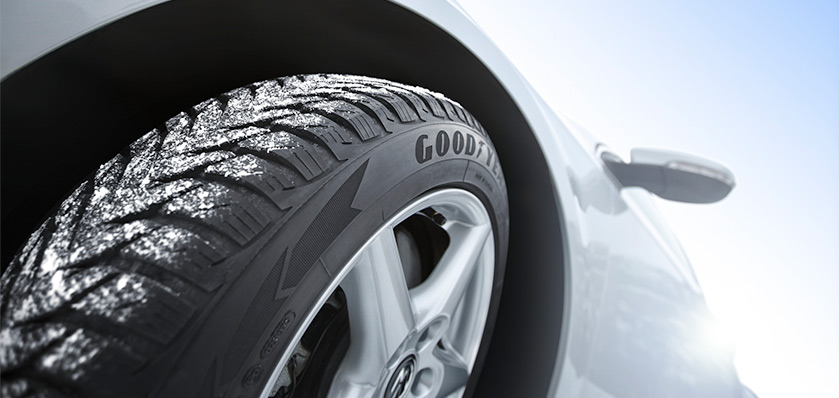
In a nutshell, tire rotations mean changing the position of the tires on the car at regular intervals. Each rotation refits your tires to a different position to make sure that each tire wears more evenly and last longer.
How you drive and the road you drive on affects how often you need to rotate your tires. Generally, it’s recommended to rotate them once every 6 months or 9,700km – whichever comes first.
While it’s possible to rotate your tires yourself if you have the right tools, it’s always best to get it done by a mechanic. This way, not only will your tires be rotated professionally, you can also check your tire alignment and balance.
Your recommended rotation pattern depends on the type of car you drive. Choose from the four below to see which works best for your car.
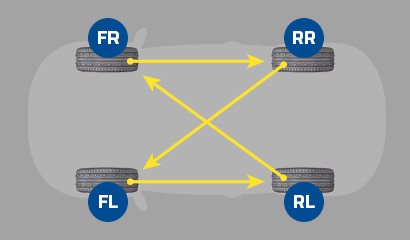
For Front-Wheel Drives, the two front tires stay on the same side of the car and move to the rear. The rear tires switch sides and move forward.
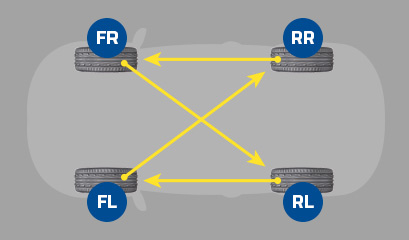
For Rear-Wheel Drives, the two rear tires stay on the same side and move forward. The front tires switch sides and move to the back.
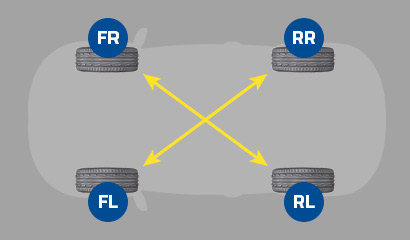
If you have a Four-Wheel Drive, both sets of tires swap sides and positions – the front tires move back and switch, and the rear tires forward and switch sides.
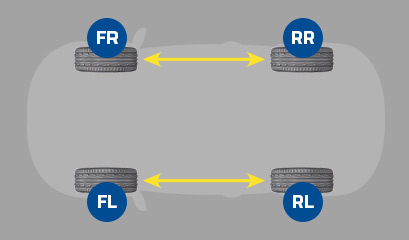
Directional tires have special tread patterns that are optimised to work specifically on the left or ride side of the vehicle. There are usually markings on the tire sidewalls to tell you which side the tire should be on. In this case, your front left tire should switch with the rear left, and front right with the rear right – switching sides can be dangerous for directional tires.






